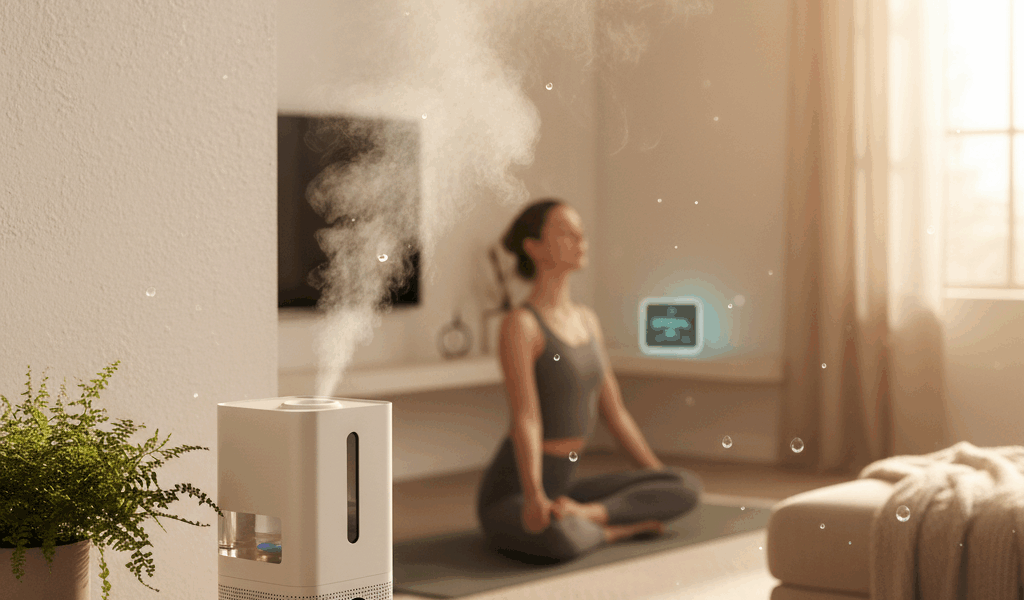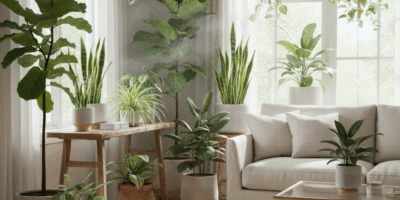How to Maintain Air Quality in NW Rental Properties
Indoor air quality in Northwest rentals has gotten complicated with all the mold issues, tenant turnover, and building codes landlords have to navigate. As someone who’s managed rental properties in the Seattle area, I learned everything there is to know about keeping tenants breathing clean air without breaking the budget. Today, I will share it all with you.
HVAC Maintenance Is Non-Negotiable

Your HVAC system controls what air tenants breathe. Replace filters every three months — dirty ones circulate dust, pollen, and mold through the whole unit. Get a professional to inspect and service the system twice a year. It’s cheaper than dealing with tenant complaints or health issues down the road.
Get the Ventilation Right
Probably should have led with this section, honestly. Good ventilation pushes pollutants out. Tell tenants to open windows when weather allows. Make sure kitchen and bathroom exhaust fans work properly. For larger buildings, a whole-house ventilation system keeps fresh air flowing consistently and prevents that stale rental smell.
Moisture Is Your Enemy

The Northwest stays damp. Excess moisture leads to mold, and mold wrecks air quality fast. Dehumidifiers help in problem units. Fix leaks immediately — water damage that sits becomes a mold factory. Use mold-resistant products in basements and bathrooms where humidity runs high.
Air Purifiers Work
HEPA air purifiers catch fine particles including allergens. Providing one in each unit or letting tenants know they’re encouraged can improve satisfaction. High-traffic areas and bedrooms benefit most. Portable units let tenants move them where needed.
Cleaning Standards Matter
Regular cleaning cuts dust and dander. Vacuum with HEPA-filter machines between tenants. Carpets, rugs, and upholstery hold onto particles. Give tenants guidelines about cleaning and suggest eco-friendly products that don’t add chemicals to the air.
Choose Low-VOC Materials
Paints, sealants, and building materials off-gas volatile organic compounds. When you renovate, use low or zero-VOC products. They cost a bit more but don’t make units smell toxic after work is done. Most products are labeled now, so finding them is easy.
Add Some Plants
Spider plants, ferns, snake plants — they absorb pollutants and add oxygen. Low-maintenance options work best for rentals since not every tenant has a green thumb. Include simple care instructions if you provide plants.
No Smoking Policy
That’s what makes air quality endearing to us landlords — a no-smoking policy solves a lot of problems at once. Secondhand smoke lingers in walls and fabrics for months. Put the policy in the lease and enforce it. Provide smoking cessation resources if you want to be helpful about it.
Regular Inspections Catch Problems Early
Inspect units for mold, dust buildup, and pest signs before they become big issues. Address problems right away. Document what you find and what you fix — helpful for both your records and tenant communication.
Educate Your Tenants
Most tenants want to help maintain good air quality — they just don’t know how. Share info on ventilation, cleaning, and warning signs of problems. Encourage them to report issues quickly. A simple fact sheet at move-in goes a long way.
Neutralize Odors Properly
Odor neutralizers beat masking sprays. Baking soda and activated charcoal work naturally without adding chemicals. Put them in kitchens, bathrooms, and near trash areas. Skip the scented stuff that just covers problems.
Rethink Carpet
Carpets trap allergens like nothing else. Hard flooring — wood, tile, laminate — in high-traffic areas is easier to keep clean. Area rugs add comfort without the wall-to-wall maintenance headaches. Whatever rugs you use, vacuum them regularly.
Store Chemicals Safely
Cleaning products and household chemicals need proper storage. Sealed containers in ventilated areas prevent off-gassing and spills. Share safe storage practices with tenants. Natural or less toxic alternatives reduce chemical exposure.
Handle Pests Quickly
Pest droppings and shed skin affect air quality. Seal entry points and inspect regularly. Use non-toxic pest control when possible. Infestations need immediate action before they worsen air quality throughout the building.
Watch the Scented Products
Candles, air fresheners, incense — they release pollutants. Suggest tenants use them sparingly and ventilate when they do. Essential oils or homemade alternatives work better. The goal is fresh air, not air that smells like it’s covering something up.
Smart Thermostats Help
Smart thermostats optimize HVAC performance and can monitor air quality. They give you data on indoor conditions that helps identify patterns and problems. Worth the investment for larger properties.
Keep Window Treatments Clean
Heavy drapes collect dust and allergens. Blinds or shades clean easier. If units have curtains, tell tenants to wash them regularly. Clean window treatments mean less dust circulating every time someone opens them.
Maintain All Appliances
Faulty gas stoves or water heaters produce harmful emissions. Inspect and maintain appliances regularly. Make it clear tenants should report malfunctions immediately. A broken appliance isn’t just an inconvenience — it’s an air quality issue.
Carbon Monoxide Detectors Are Required
These save lives. Install detectors near sleeping areas and fuel-burning appliances. Check batteries regularly and replace them. This isn’t optional — it’s basic safety and often legally required.
Weatherproof the Building
Outdoor pollutants get in through gaps around windows and doors. Weather-stripping and caulking improve airtightness. This keeps smoke season air outside where it belongs and helps with energy costs too.



